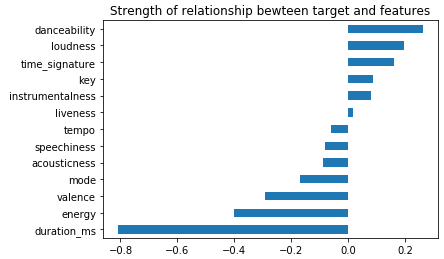My paper is now on arxiv!
Predicting Afrobeats hit songs using Spotify data https://arxiv.org/pdf/2007.03137.pdf">https://arxiv.org/pdf/2007.... . It is an experiment on Hit Song Science (HSS) for the Afrobeats genre. Because why not? We global now.
Predicting Afrobeats hit songs using Spotify data https://arxiv.org/pdf/2007.03137.pdf">https://arxiv.org/pdf/2007.... . It is an experiment on Hit Song Science (HSS) for the Afrobeats genre. Because why not? We global now.
The data used in the experiment was sourced using Spotify’s Web API and the songs in the dataset were picked from existing playlists created by Spotify “editors” or other users. Why playlists?
1. There is no authoritative music chart for Afrobeats like Billboard Hot 100 that’s been running for more than five years. 2. Playlists on Spotify is the rail track through which songs are transported from 10 to Hot 100.
They call it the “playlisting” strategy. So only songs that have received a level of attention (via playlists) made the cut.
Spotify runs a suite of audio analysis algorithms to extract features from every song on their platform and they make such info available through different API endpoints. I’m going to talk about some of these features from my experiment:
1. Popularity - Spotify assigns a value between 1-100 to each track based on the popularity of the track. Full details of the algorithm used for this ranking is not publicly available but I think the algo keeps it fair because I checked the reported values against Youtube views.
@Burnaboy’s Ye popularity ranking is 72, and Wonderful 63. @Wizkidayo’s Ojuelegba is 56, Joro 66, and Ghetto love 61. @Zlatan_ibile’s Zanku is 26, Killin Dem 57. @MrEazi has VERY impressive numbers across the board.
@davido’S Fall 57, If 59, Risky 56. Please note that the algo is biased towards songs that are being played a lot right now but if an old song has a high ranking, that means the song is forever poppin. A percentage of the highest ranked songs are collabos with foreign artistes.
2. Tempo - Spotify measures the estimated tempo of a track in beats per minute (BPM). @Doubleeph ( and @segundemuren who was quoted) in this article https://aguntasolo.co/how-to-export-maybe-18f6f779c4ff">https://aguntasolo.co/how-to-ex... talked about the ‘slowing down’ of Nigerian music and how the biggest songs today have BPM below 100.
The result of the experiment support @DoubleEph & #39;s theory; peep tempo trending towards the negative in the pic below:
3. Time signature specify how many beats are in each bar and it’s right up there. @donjazzy @shizzi @alhajitekno knows where it’s at.
4. Speechiness detects the presence of spoken words in a track; it’s easy to tell why rap has less commercial appeal in Afrobeats If you look at the direction of speechless in the pic.
If you’re familiar with the nitty-gritty of machine learning algorithms, you can go ahead and read the paper to scrutinize the result of the experiment. Otherwise, just know that a model was able to predict if a song is going to be a hit with around 90% accuracy.

 Read on Twitter
Read on Twitter


